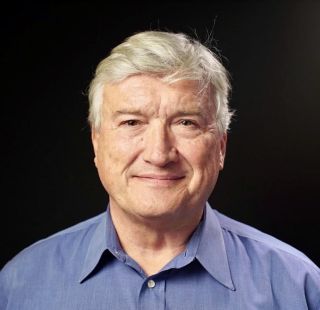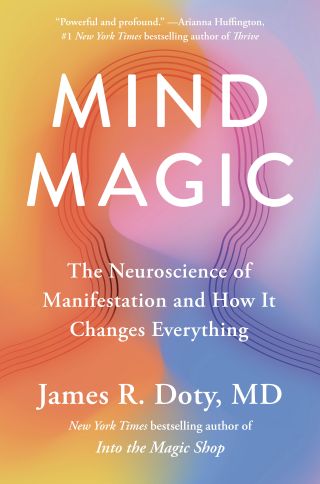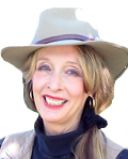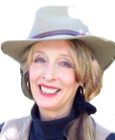Fear
Are You Afraid Your Efforts Can't Make a Difference?
New brain-based strategies for regaining your sense of agency.
Updated July 31, 2024 Reviewed by Abigail Fagan
Key points
- Today, many of us are feeling isolated, anxious, and insecure. We’ve lost our sense of agency.
- Three reasons for this may be trauma, our negativity bias, and cultural triggers.
- We can regain our sense of agency by redirecting our attention.
In our challenging world today, too many of us feel isolated, anxious, and insecure (Murthy, 2023; World Health Organization, 2023). We’ve lost our sense of agency, the belief that our efforts can make a difference.

James R. Doty, MD, the author of the new book, Mind Magic: The Neuroscience of Manifestation and How It Changes Everything (2024a), offers brain-based strategies for regaining our sense of agency and points out three reasons why so many of us have lost it.
1. Many people “carry unresolved trauma that continues to dictate their choices unconsciously” (2024a, p.61). Negative experiences in our childhood can get lodged in our brains, creating a narrative of fear that may continue to affect our adult perceptions and choices.
2. All human beings have a “negativity bias, which makes us turn to negative events or negative statements about ourselves because of how we evolved as a species to avoid threat” (Doty, 2024b). The brain’s scanning for threats that once helped our ancestors survive in the wilderness now keeps us focused on negativity, blocking our ability to perceive positive opportunities.
3. Contemporary culture triggers us with feelings of insecurity, capturing our attention with negative news, advertising, and social media. As Dr. Doty says, “In a Western capitalist society, it’s all about the money. And so instead of promoting positive stories or events which actually do not capture our attention, we turn to things that potentially are a threat to us.”
Add to all this the lingering effects of the Covid pandemic, along with increasing political and economic insecurity and many of us no longer feel safe.
We become caught up in what Dr. Doty calls “a fear narrative.” Seeking security, we strive for material success and project an image of how we want others to see us, “terrified that if somebody actually sees us as we are, we will be made to feel inadequate.” This fear narrative continually activates our sympathetic nervous system, trapping us in chronic stress, which compromises our physical, cognitive, and emotional health.

What can we do about this?
1. Meditate. As the founder of Stanford University’s Center for Compassion and Altruism Research and Education (CCARE), Dr. Doty realizes how meditation can shift us from a fear mode by activating our parasympathetic nervous system.
This shift lowers our blood pressure, boosts our immune system, and decreases inflammation, bringing us a greater sense of calm, connection, and peace. We can then think more clearly, relate to others more compassionately, make better decisions, and live lives of greater possibility.
2. Cultivate Community. When we feel insecure, many of us chase after external success and material possessions. But as Dr. Doty explains, this “never fills that void or emptiness we have inside, because it is antithetical to how we evolved as a species.”
For centuries, he says, referring to the work of Dan Buettner (2023), human beings lived in small villages, extended families where “you knew you were unconditionally loved and accepted, and people were there to help you.”
As the Harvard adult development study (Waldinger & Schulz, 2023) confirms, we need connection and community to feel secure, accepted, and safe. Dr. Doty explains that then “you have a sense of openness calmness, generosity, because you’re not afraid, you’re in a community, you’re cared for.” So we can overcome the fear narrative by reaching out to connect with the people around us.
3. Set a Clear Intention. Dr. Doty encourages us to ask ourselves what we really want from our life—not chasing after materialistic goals or fleeting pleasures, but finding a way to use our strengths to contribute to the greater good. It is this connection to community that enables us all to flourish, individually and collectively.
4. Deal with the Inner Critic. Even with a clear intention, Dr. Doty says, we can become blocked by an inner critical voice that stirs up fear within us. As he explains in his book, “As we begin to manifest our intention, it is likely that we will be faced with self-doubt and fear, or feel we are an imposter. This is the mind’s natural response to any encounter with the unknown” (Doty, 2024a, p. 100).
Our brain’s alarm system, which developed to protect us, senses anything unfamiliar as a threat, even when it’s a new project we care about. Dr. Doty encourages us to become aware of the messages we’re telling ourselves, for “our power to manifest the things and experiences we desire comes down to our ability to throw off the narrow mental habits that keep our perception shrouded in fog and tell us we are unable to influence a situation or resist a habitual reaction and instead to embrace our sense of inner power” (2024a, p.68).
5. Develop Greater Equanimity. Life is not always smooth sailing. We have challenges, and, as Dr. Doty realizes from his work and his own experience, the challenging times are often when we learn so much about ourselves and what we value in life. He encourages us to cultivate greater “evenness of temperament, not getting lost in any extreme, understanding what each brings to you.”
Knowledge Is Power. As we confront today’s challenges, we can remember that uncertainty creates fear, puts us into chronic stress, and narrows our vision of possibility. But as Dr. Doty says, “knowledge is the key to transformation.” With a greater knowledge of ourselves, our brains, and our reactions, we can reclaim our power. We can redirect our attention by shifting our focus—by meditating, reaching out to those around us, and setting a clear intention. And by doing this, we can develop the agency to manifest what we truly value in life.
This post is for informational purposes and should not substitute for psychotherapy with a qualified professional.
© 2024 Diane Dreher, All Rights Reserved.
References
Buettner, D. (2023). The Blue Zones secrets for living longer. Washington, D.C.: National Geographic.
Center for Compassion and Altruism Research and Education (CCARE). https://ccare.stanford.edu/
Doty, J.R., MD. (2024a). Mind magic: The neuroscience of manifestation and how it changes everything. New York, NY: Avery.
Doty, J. R., MD. (2024b). Personal communication. Interview on July 18, 2024. Unless otherwise noted, all quotes from Dr. Doty are from this source.
Murthy, V. H. (2023). Our epidemic of loneliness and isolation: The U.S. Surgeon General’s advisory on the healing effects of social connection and community. https://www.hhs.gov/sites/default/files/surgeon-general-social-connection-advisory.pdf
Waldinger, R. J. & Schulz, M. (2023). The good life. London, UK: Rider.
World Health Organization. (2023). Anxiety disorders. https://www.who.int/news-room/fact-sheets/detail/anxiety-disorders




